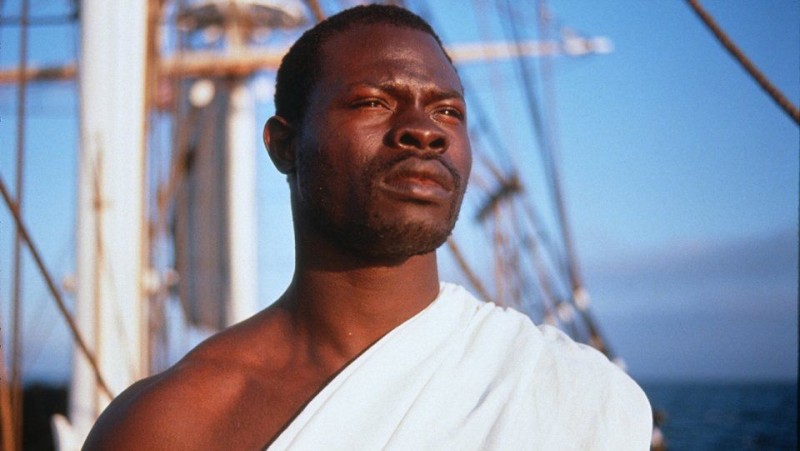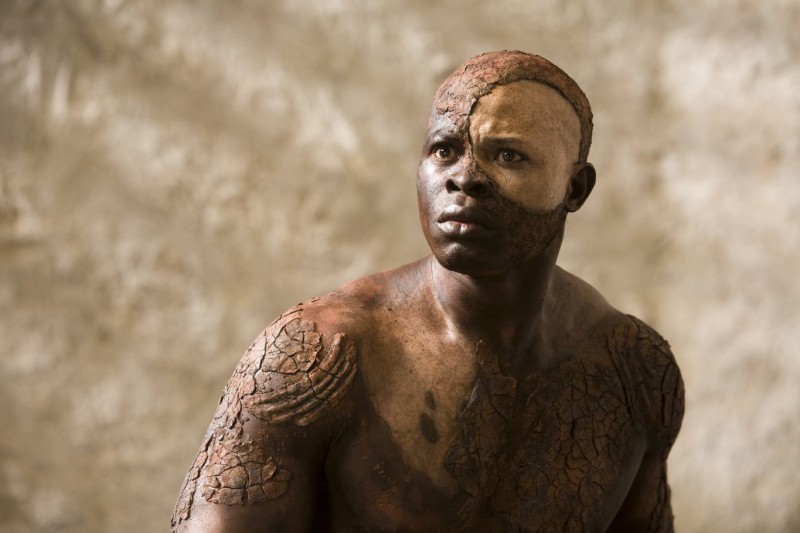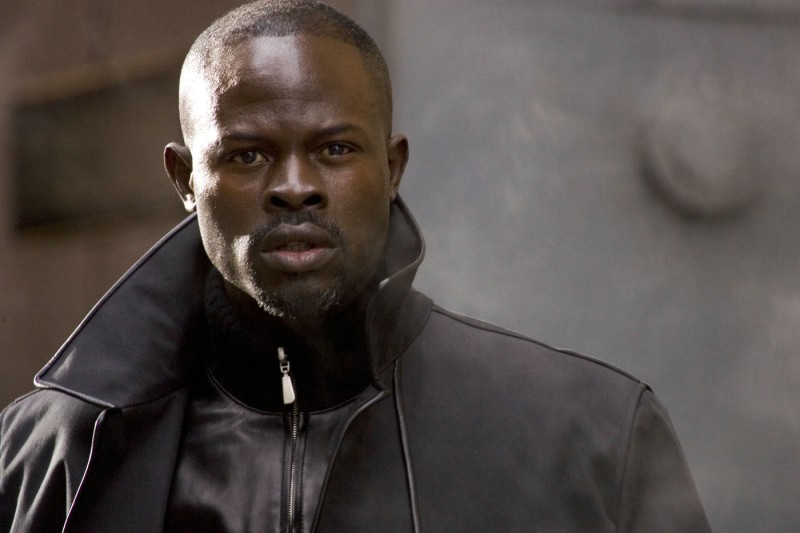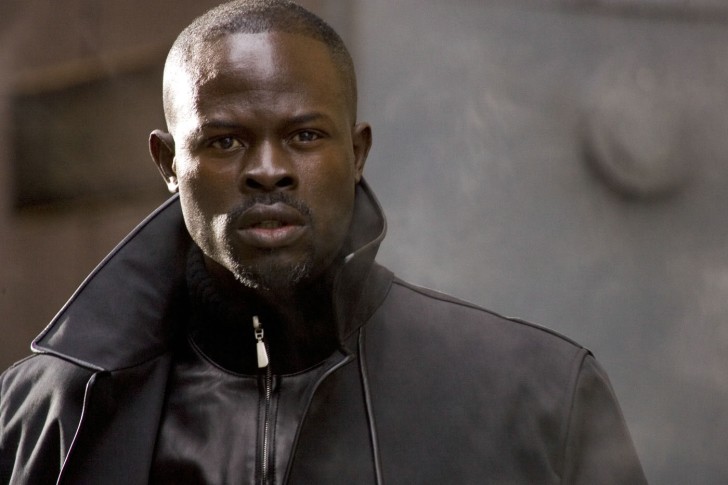So here's the thing about Djimon Hounsou - you've definitely seen this guy in everything from "Gladiator" to Marvel movies, right? But what's crazy is that he just came out and said he's basically broke. Well, not broke-broke, but way less wealthy than you'd expect for someone who's been killing it in Hollywood for three decades.
The dude's got two Oscar nominations under his belt, he's been in massive blockbusters, and yet he's out here telling CNN that he's "struggling financially to make a living." That's pretty wild when you think about it. Makes you wonder what's really going on behind all that Hollywood glam.
How It All Started: From Sleeping on Benches to Making Bank

Djimon's story is honestly insane. This guy was born in Benin back in 1964 - that's in West Africa for those keeping track. His dad was a cook, nothing fancy. When he was just 12, he packed up and moved to France with his brother, thinking he'd get a better education there.
But life had other plans. The kid ended up dropping out of school and literally living on the streets of Paris. We're talking about sleeping on park benches for like a year and a half, not knowing where his next meal was coming from. Can you imagine? That's rock bottom right there.
Then boom - pure luck changes everything. He bumps into this famous fashion designer, Thierry Mugler, who's like "Hey, you should be a model." Just like that, Djimon's life flipped. By 1987, he's walking runways in Paris and actually making real money for the first time in his life.
The Modeling Days: First Real Paycheck

Once Djimon got into modeling, things started looking up. He wasn't just doing random gigs either - this guy was appearing in music videos for Madonna, Janet Jackson, and Paula Abdul. Those were huge deals back in the late 80s and early 90s.
Music video work back then could easily pay $5,000 to $15,000 per gig, especially when you're working with A-listers like Madonna. So he's finally making decent cash and building connections. In 1990, he made the move to America and got his first movie role in "Without You I'm Nothing."
Sure, it wasn't a huge part, but it was the start of something bigger. He kept doing both modeling and acting for a while - smart move, honestly, because you never know which one's gonna pay the bills.
The Big Break: When Djimon Hounsou Net Worth Should've Exploded

Everything changed in 1997 with "Amistad." Steven Spielberg cast him as the lead, and Djimon absolutely crushed it. The performance was incredible - got him a Golden Globe nomination and put him on the map as a serious actor.
But here's where it gets frustrating. Even though he killed it in that movie, the Academy completely ignored him for the Oscars. According to Djimon, they basically thought he was just some random guy Spielberg found on the street. "They thought that I had just came off the boat and off the streets where Steven Spielberg used me for this film," he said. That's pretty messed up.
The good news? Hollywood finally started paying attention. He landed roles in "Gladiator" (which made over $460 million worldwide), then got those two Oscar nominations for "In America" and "Blood Diamond." "Blood Diamond" alone brought in $170 million globally. You'd think that kind of success would set someone up for life, right?
Current Money Situation: The Djimon Hounsou Net Worth Reality

Here's where things get really interesting. Different websites are throwing around wildly different numbers for djimon hounsou net worth. Celebrity Net Worth says he's worth about $2 million, some other sources claim $4 million, and there are even some crazy reports saying $35 million (which seems totally off based on what he's saying).
But the man himself just went on CNN and basically said he's struggling. "I've been in this business making films now for over two decades with two Oscar nominations and many blockbuster films, and yet, I'm still struggling financially. I'm definitely underpaid." That hits different when it's coming straight from him.
He does own some property though. There's this house in Westchester, LA that he bought for $2.1 million a few years back. He's renting it out for about $11,750 a month, which brings in roughly $141,000 a year. That's solid rental income, but it's not exactly "I'm set for life" money.
What really gets me is when he talks about seeing other actors who have way less success but are "absolutely well off." That's gotta sting. The guy's been in Marvel movies, DC films, worked with Ridley Scott and Steven Spielberg, and he's still fighting for fair pay.
What Djimon Teaches Us About Making It

Even though he's frustrated with the money side of things, Djimon's journey is packed with lessons about building real success:
- Don't Let Anyone Kill Your Dreams: His biggest piece of advice? "Never lose sight of the dream. Any given day somebody in your circle might discourage you. It's important to surround yourself with like-minded people who have similar dreams." The guy knows what he's talking about - he went from homeless to Hollywood.
- Find Your Why: Djimon always talks about wanting to change how Africa and African people are portrayed in movies. "I came to California with this compelling need to do something for my continent and do something for my people." Having that bigger purpose kept him going when things got tough.
- Love Yourself First: This one's deep - "Until you are somewhat comfortable and confident and embrace who you are as a person, you can't possibly love somebody else because you don't like yourself that much." He learned this the hard way during those rough Paris street days.
- Keep Pushing Through the BS: Even when Hollywood kept lowballing him or treating him unfairly, he didn't give up. "It's up to me to redeem that. I still have to prove why I need to get paid," he says. That's the mindset that keeps you going when the industry tries to box you in.
The whole djimon hounsou net worth situation really shows how screwed up Hollywood can be. Here's a guy who's done everything right - great performances, big movies, critical acclaim - and he's still fighting for basic respect and fair pay. His story proves that even when you make it to the top, the system can still work against you if you don't fit the traditional mold.
 Peter Smith
Peter Smith

 Peter Smith
Peter Smith


